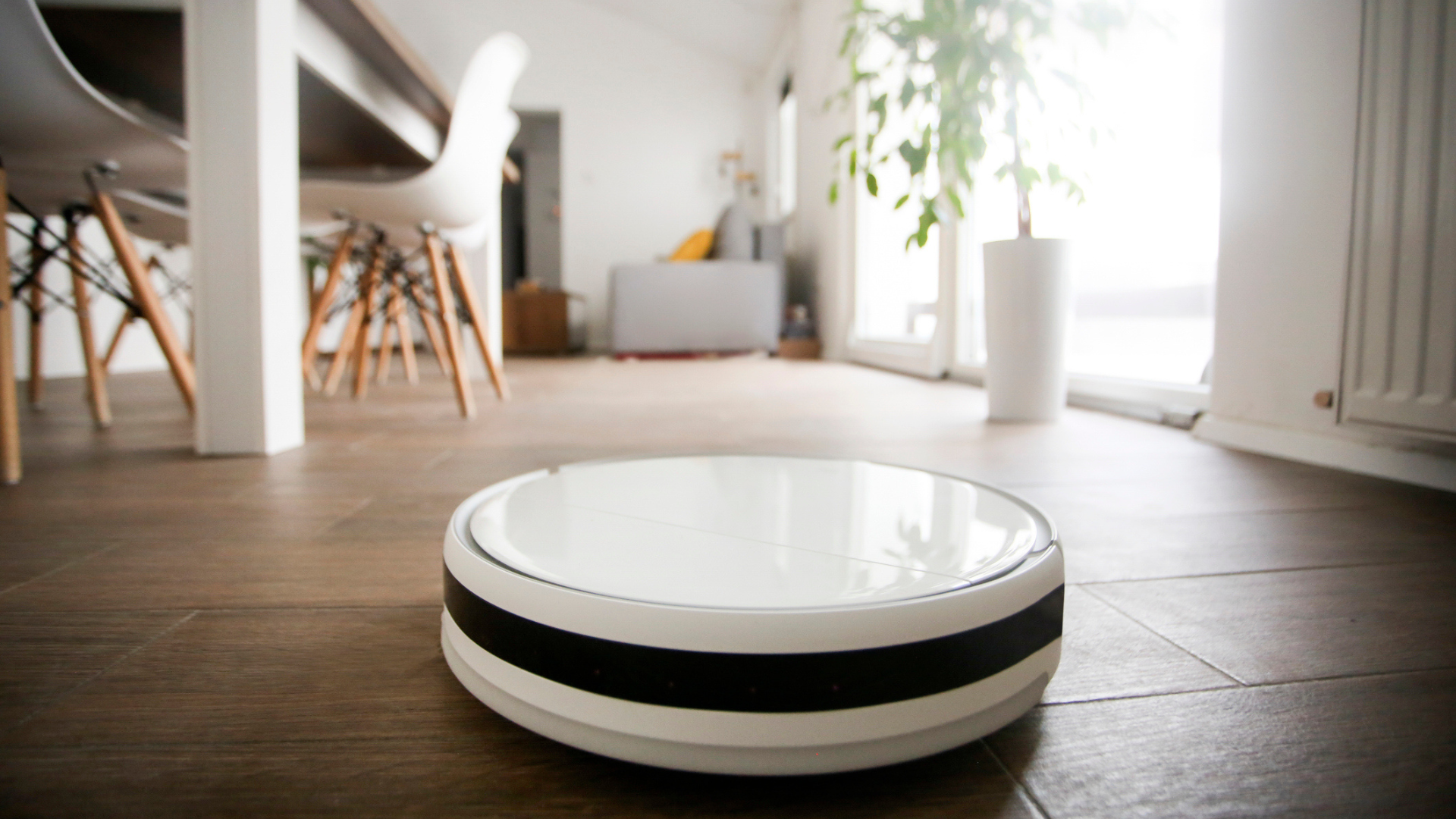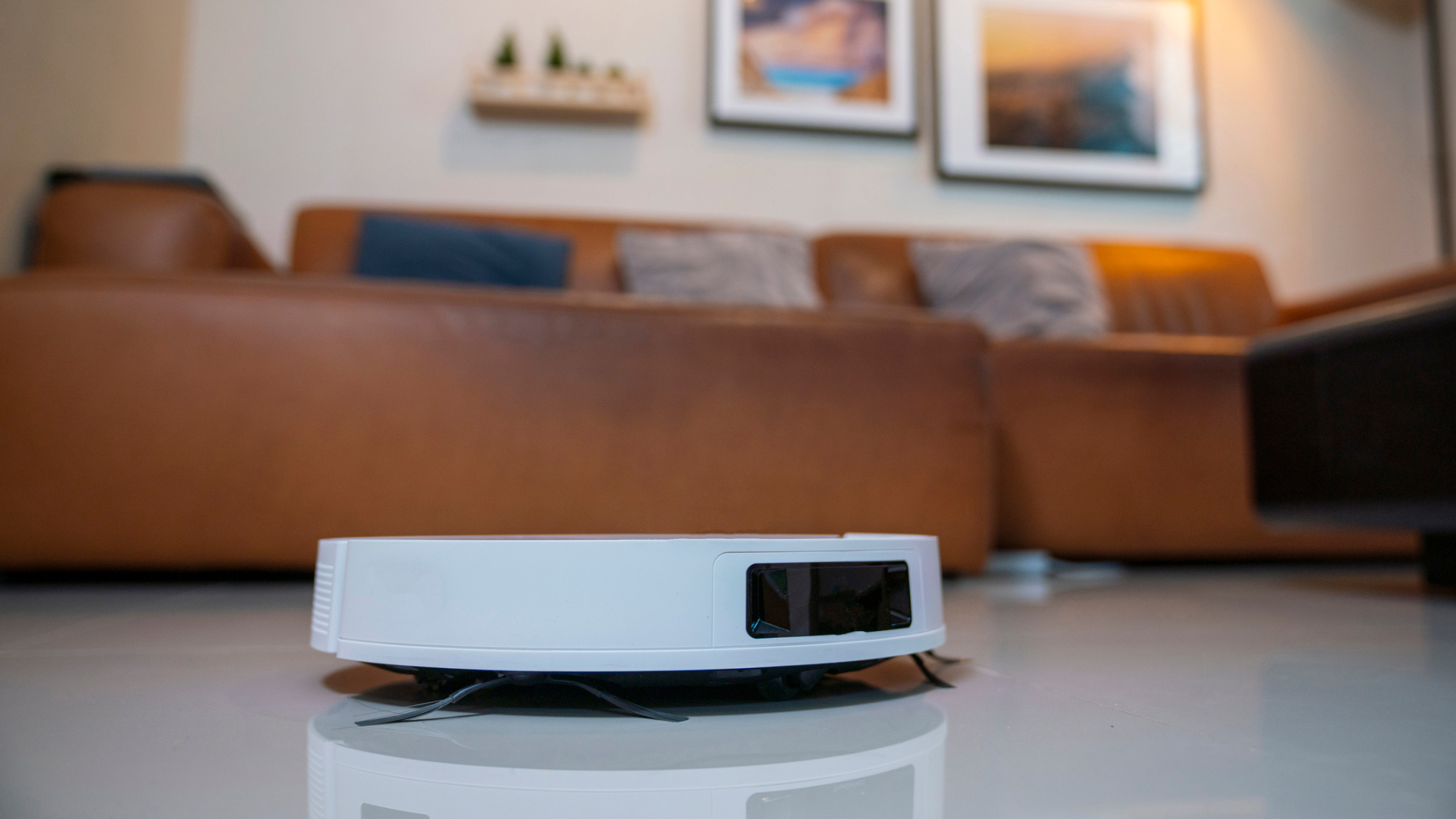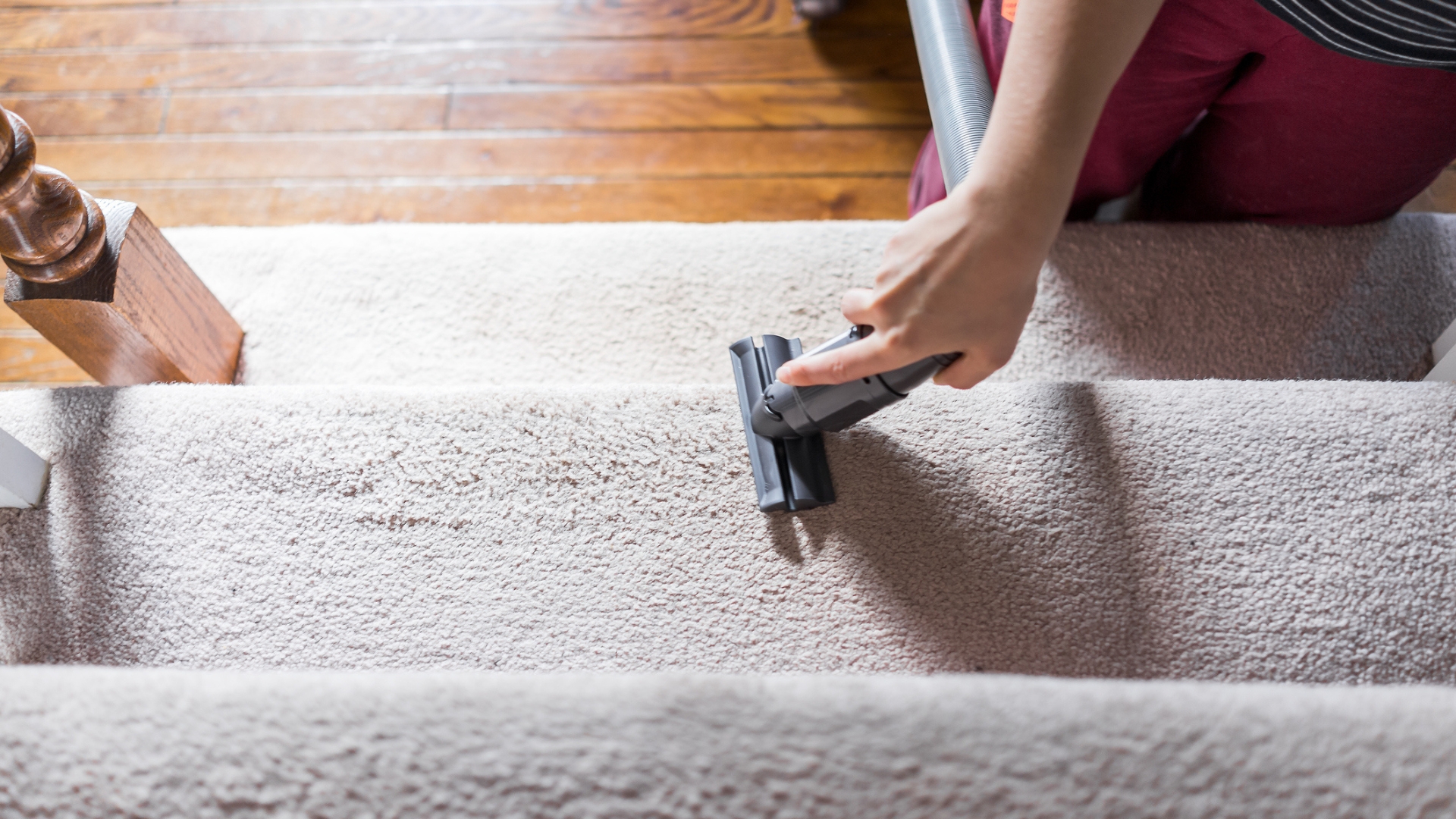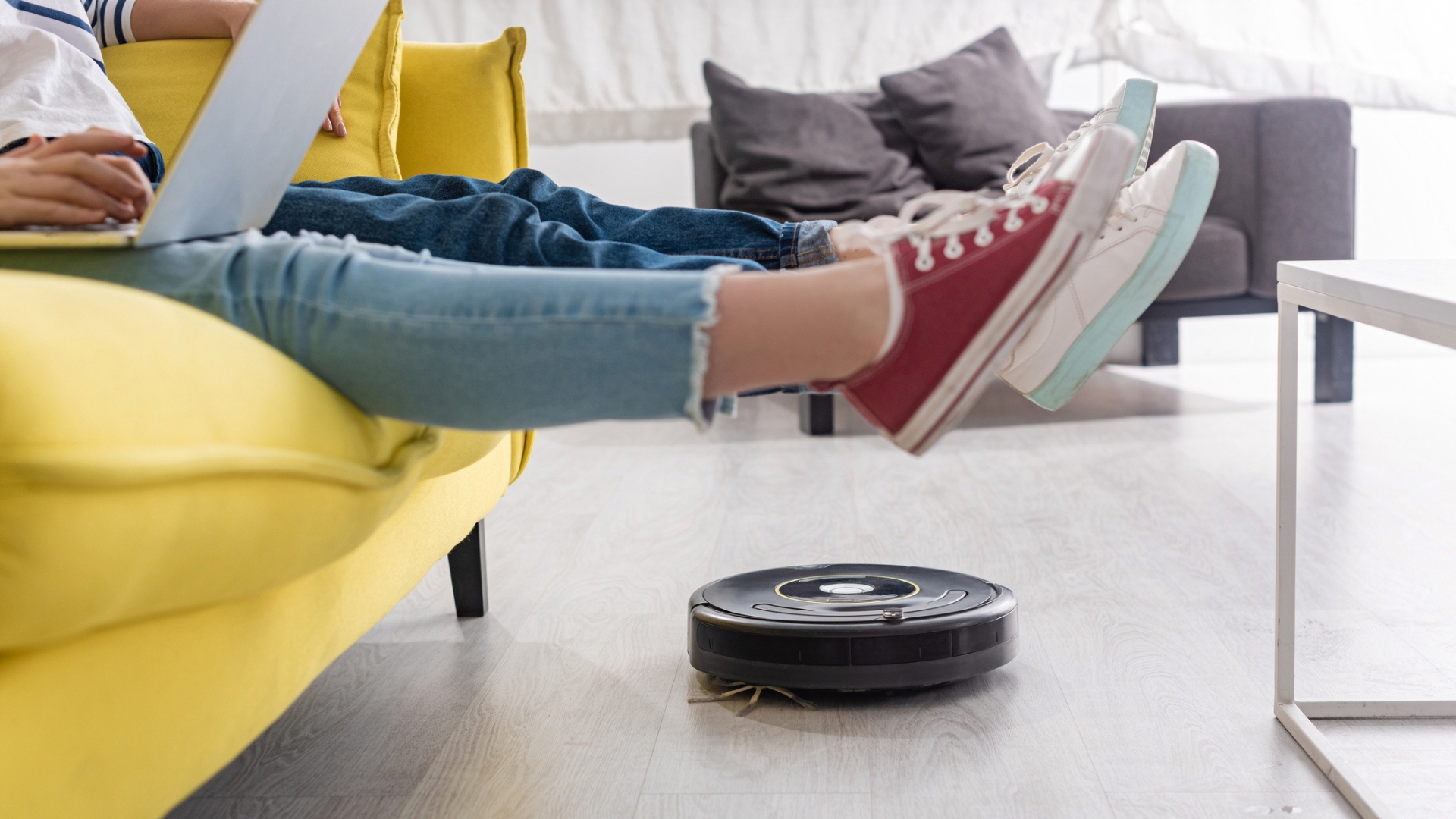'What I wish I had known before buying a robot vacuum' by a shopping editor who's learnt the hard way
Expert tips and advice on everything you need to consider before you let a robot clean your floors


Robot vacuums are the kind of household innovation our grandmothers could only have dreamt of. Yet, they're now a mainstream household must-have rather than a futuristic flight of fancy, sold by all major appliance brands, including Dyson and Shark.
A robot vacuum is a wonderful thing to own. I wouldn't be without mine - it's definitely one of the best vacuum cleaners I've ever owned - but the list of things I wish I had known before I bought it is long. So, if you're tempted to invest in one before Black Friday ends, I recommend first taking some time to understand what they can and cannot do. If you're picturing a world where you never have to pick up a vacuum cleaner again, I'm here to burst your bubble.
Robot vacuums can drastically reduce the time you spend cleaning your home - no more crawling under the table chasing crumbs after dinner - but they're not perfect. Some models empty their dustbins and can even mop the floor, which is impressive, but they can't handle everything.
They can't tackle stairs, for example, and - like most machines - they sometimes miss the things that humans would have spotted. So, to save you from splashing out on an expensive household gadget that turns out to be a disappointment, here's everything you need to know before you buy a robot vacuum.
What you need to know before buying a robot vacuum
Before we discuss the various factors to consider before buying a robot vacuum – such as your floor type, the size of your home, and any specific cleaning needs – it's worth taking the time to understand how they work.
You might not care much about vacuum cleaner mechanics but a basic grasp of how a robot vacuum works is essential to ensure you choose one that will live up to your expectations.
A robot vacuum uses sensors, motors, and algorithms to find its way around your home and clean your floors. Wheels allow it to move smoothly over different surfaces like carpet, hardwood floors and tiles, while brushes and a suction system pick up dirt and debris.
Some robot vacuum cleaners use mapping technology to ‘learn’ the layout of your space while the sensors enable it to avoid crashing into obstacles such as stairs, table legs and walls. Once the room is cleaned or the battery runs low, most robot vacuums return automatically to a charging dock.

1. They require supervision
The biggest thing I wish I had known before I got my robot vacuum was just how much help I would need to give it. Perhaps I was naive but this took me by surprise - and could become a bone of contention if you invested heavily in a robot vacuum without realising how much help it would need.
I envisaged setting my robot vacuum to work and forgetting all about it but in reality, I spend quite a lot of time supervising. They're designed to steer clear of obstacles, but they can easily get stuck. I've had to rescue mine from awkward entanglements with shoelaces, and rogue socks abandoned under my children's beds can be particularly problematic.
Mine frequently seems to lose its bearings under the sofa, ending up stuck, and don't get me started on the number of times I've had to dive into the path of the robot to save an expensive charging cable from an untimely end.
Our top 3 robot vacuum picks
If you're not sure where to start, these three robot vacuums have all been put through rigorous rounds of testing by our expert, Laura. There are other models that she tested which didn't get five stars, but you want to invest in the best. To sweeten the deal, they're all on offer for Black Friday:

Eufy makes famously affordable, but still high-tech robot vacuums. This one promises a mop, anti-hair-wrap technology, and intelligent home mapping. On test, it delivered all of these results and more, effortlessly lifting pet fur from the deep pile carpet. You'll want to be handy with the app (it's not as intuitive as others).

iRobot are a trustworthy brand in the world of vacuums. In our tests, the j7+'s strengths were its obstacle detection (a godsend in busy homes); intelligent mapping (although you can't set 'keep out' zones until the whole house is mapped) and elegant design (I'd be happy to have it in even the most visible spot in my home).

Shark's innovations in the robot vacuum industry are unparalleled. This offers unique wheels that don't get stuck on obstacles, rugs, or when crossing thresholds. The self-soaking (and drying) mop sounds too good to be true, but they're very real successes. It's a step up in price, but the technology reflects that.
2. They don't do stairs

Again, perhaps this was naivety on my part but I hadn't fully grasped, before buying a robot vacuum, that stairs would be off-limits.
It makes perfect sense - they have drop sensors to prevent them from getting too close to a step because they'd fall off, and design limitations mean they can't climb stairs. (Gravity probably plays a part too, as robot vacuums aren't exactly light.) So, if you live in a home with stairs, bear in mind that you'll almost certainly still need a traditional vacuum cleaner.
Tamara Kelly, woman&home's lifestyle editor thinks robot vacuums are the new 'toy' for the home, hailed as the modern cleaning gadget set to change our lives. "But I'll be totally honest with you, I was still on the fence about just how good these smart cleaning devices really are – after watching countless demos on prototypes that seemingly crash into everything and didn't appear to pick up all the dirt," she says.
"But now I know what they can and can't do I feel like I can take a more realistic approach and think about how it can help in certain areas of general maintenance - without replacing the work of my cordless vacuum and certainly not when cleaning my stairs (I actually swear by an Amazon carpet lint remover to remove the pet hair from my stairs). The other aspect for me has always been the price, they are often very expensive. Perhaps now cheaper models (like Heidi's robot vacuum) are doing great things I might finally invest."
3. They require maintenance

The whole appeal of a robot vacuum is how much time it will save you, so it can be a little disappointing to discover just how much TLC they require to keep them running optimally.
With a robot, you have to clean the brushes regularly to maintain suction power and wipe down the sensors with a soft cloth to prevent problems with navigation. Then there's keeping the charging dock free of dirt and dust, cleaning the filter, and emptying the dustbin. Parts, like brushes and filters, will eventually wear out and need to be replaced, too.
No household gadget worth owning is entirely maintenance-free, of course, but it's important to note that a robot vacuum isn't a silver bullet for effortless cleaning; it's a machine that requires ongoing care and maintenance.
4. Pets can be a problem

I'm not talking about tackling pet hair - my robot vacuum is brilliant at picking up the worst of my puppy's fuzz when she's shedding her coat. Nope, the issue is that both my cat and dog despise the robot vacuum and regard it with the utmost suspicion.
To be fair, they're not huge fans of my cordless vacuum either so I wouldn't say this is a reason not to buy one. But I wish I had known, before buying a robot vacuum, that I would have to wait until the pets were sound asleep or out of the house before putting it to work.
5. Robot vacuums can be noisy

This one is definitely on me; who in their right mind would expect a vacuum cleaner to be quiet? It was a foolish expectation but it's important to disavow yourself of the notion that a robot will be a quieter alternative to a traditional vacuum. Unlikely. (But come on, it's cleaning the floor for you while you do something more fun; if it was quiet, too, we would be living in a perfect world.)
That said, I love the sound my robot vacuum makes. It's a bit like the feeling you get when someone powers up the best coffee machine to make you a fancy flat white; there's something strangely thrilling about the sound of your floors being cleaned while you find something more enjoyable to do.
Unlike the best dehumidifiers for bedrooms, it's not the end of the world if it makes some degree of noise, it's not like I'm not losing sleep over it.
FAQs
What to look out for when buying a robot vacuum
There are several important things to consider when choosing a robot vacuum:
- Floor type: It's essential to consider your floor type before you buy a robot vacuum as thick carpets may require stronger suction power than hardwood floors or tiles. Suction power is measured in Pa or air watts so check before you buy that the model you like is designed for your floor type.
- Battery Life: There's nothing more frustrating than investing in a robot vacuum that doesn't have the battery life to handle the size of your home. Choose one with a battery that lasts at least 90 minutes on a single charge, and make sure it automatically returns to its charging dock when the battery runs low.
- Capacity: The larger the capacity of the robot vacuum's dustbin, the less frequently you'll have to empty it. Go for the biggest capacity you can afford, especially if you have a bigger home or one that requires more frequent vacuuming. And if your budget allows, it's well worth choosing one that empties its own dustbin - gamechanger.
- Navigation & Mapping: A robot vacuum with advanced mapping will be better at creating an efficient cleaning route. Room mapping functionality is a must if, like me, your home is full of obstacles like abandoned shoes and forgotten PE kits.
- Smart functionality: I'm not a huge fan of paying more for these features as I tend not to use them as much as I imagine I will. But if you're a techie, it's well worth choosing a robot vacuum with smart functionality like voice assistant compatibility (e.g., Alexa, Google Assistant), app control, and scheduling. Imagine being able to tell your robot vacuum when to get to work!
- Noise Level: It's unrealistic to expect a robot vacuum to be quiet but if you're likely to use it while working from home, for example, check the decibel rating (dB) and choose a quieter model so it won't disrupt calls or concentration.
- Cleaning and maintenance: Some robot vacuums require more frequent maintenance than others so consider how much energy you have for keeping it working optimally. I'm a fan of low-maintenance robot vacuums with self-cleaning brushes and washable filters.
- Price: Robot vacuums vary hugely in price and functionality. You can pay anything from around £100 to several hundred pounds. More expensive models tend to have more advanced functionality so, in my experience, it's worth comparing the models in your price range and paying more, if you can, for features like better mapping and suction power.
What are the negatives of robot vacuums?
If you invest in a robot vacuum you'll probably still need to use a traditional vacuum cleaner from time to time, as robot vacuums aren't perfect. They can have limited cleaning power, especially on stubborn stains and thick carpets. Their small size means they also have smaller dustbins, so you may have to empty them after each use. Robot vacuums also sometimes struggle to navigate obstacles, getting stuck easily. Finally, they require regular cleaning and maintenance to ensure they continue to work optimally.
How do I prepare my house for a robot vacuum?
To prepare your house for a robot vacuum, clear the floor of any major obstacles. Pick up anything - like toys, shoes and cables - that could obstruct its path or that a robot vacuum could easily become entangled with. You shouldn't need to move furniture as a robot vacuum uses sensors to navigate its way around 'fixed' obstacles like chairs and table legs. Consider moving fringed rugs or carpets out of the way, as these may obstruct the robot's path. Finally, make sure you have ample space around the docking station and that the path to it is clear so that the robot can easily find its way back when cleaning is complete or the battery is running low.
Is it worth buying a robot vacuum?
Yes, if you'd like to spend less time vacuuming without sacrificing a clean home. A robot vacuum can take care of your floor cleaning automatically, freeing up your time so you can relax, unwind, or focus on other interests.

Buying a robot vacuum is a big decision. They're not cheap and nobody wants to spend hundreds of pounds on a pricy household appliance if it's not going to get the job done better than a human could.
If you take time to carefully consider your needs, compare different models and functionality, and choose wisely, your robot vacuum could genuinely end up being one of the best investments you make. I love mine and it's no exaggeration to say that I would (briefly) consider running into a burning building to retrieve it.
I can't see me chucking out my beloved cordless vacuum any time soon - the robot vacuum is a wonderful addition to my cleaning cupboard, not a replacement vacuum. But after a long day at work, followed by the chaos of feeding and cleaning up after a family of five, my favourite task is setting the robot vacuum to work while I sit down with a cuppa or a glass of wine. Yes, it's an expensive bit of a kit that you could probably live without, but the satisfaction that comes from putting my feet up while a machine cleans my floors? Priceless.

Heidi is a highly experienced lifestyle journalist with nearly 20 years in the industry. Before joining Future in 2021, she built a successful freelance career spanning over 15 years, earning bylines in many of the UK’s leading national newspapers, including The Guardian, The Times, and The Telegraph. Her work has also featured in a wide range of print and digital magazines such as Psychologies, Red, Glamour, and Mother & Baby, where she spent six years as Shopping Editor. Heidi now specialises in consumer content, creating expert buying guides, product reviews, and gift round-ups that take the guesswork out of “what to buy for...” any occasion.